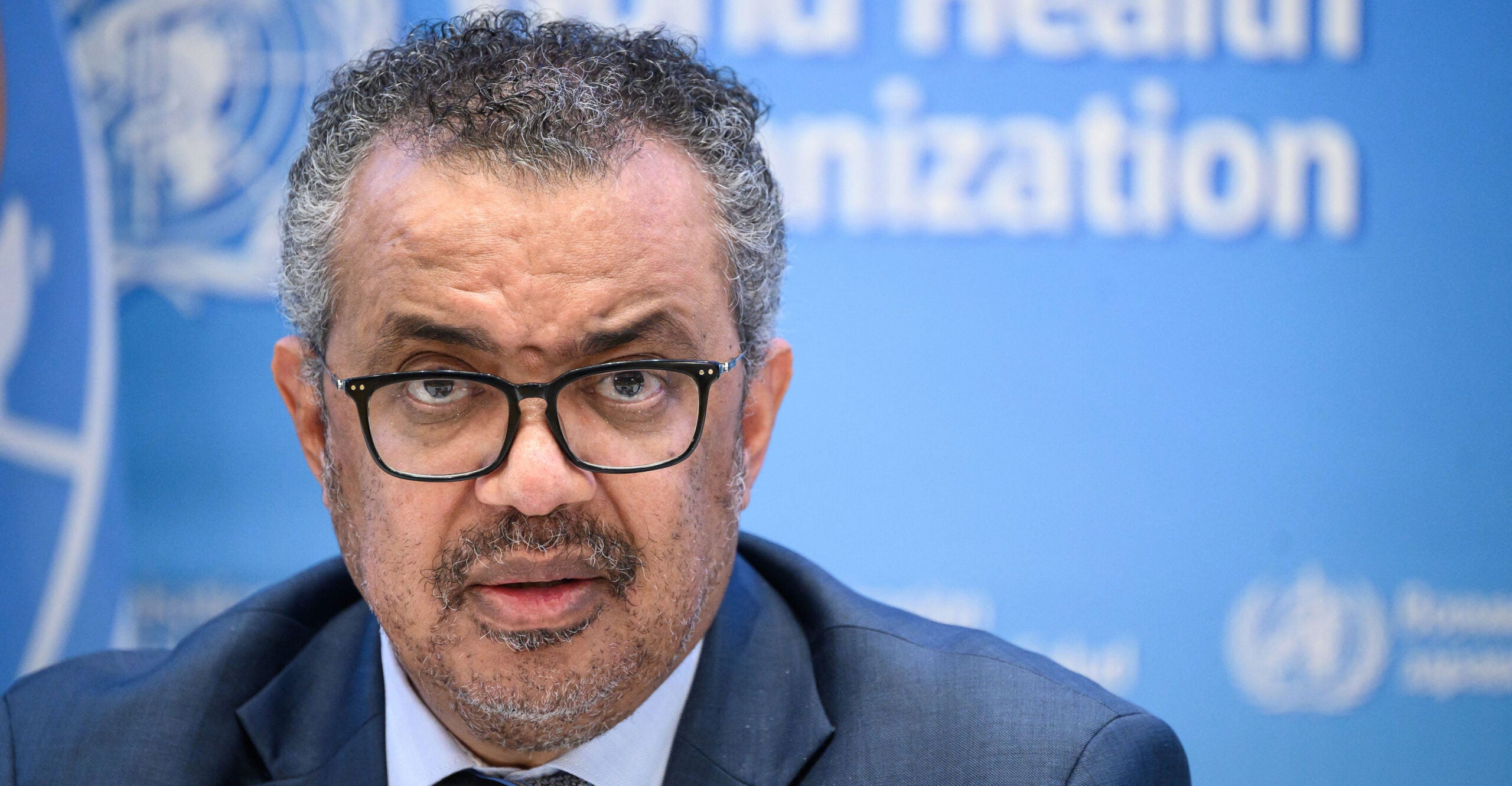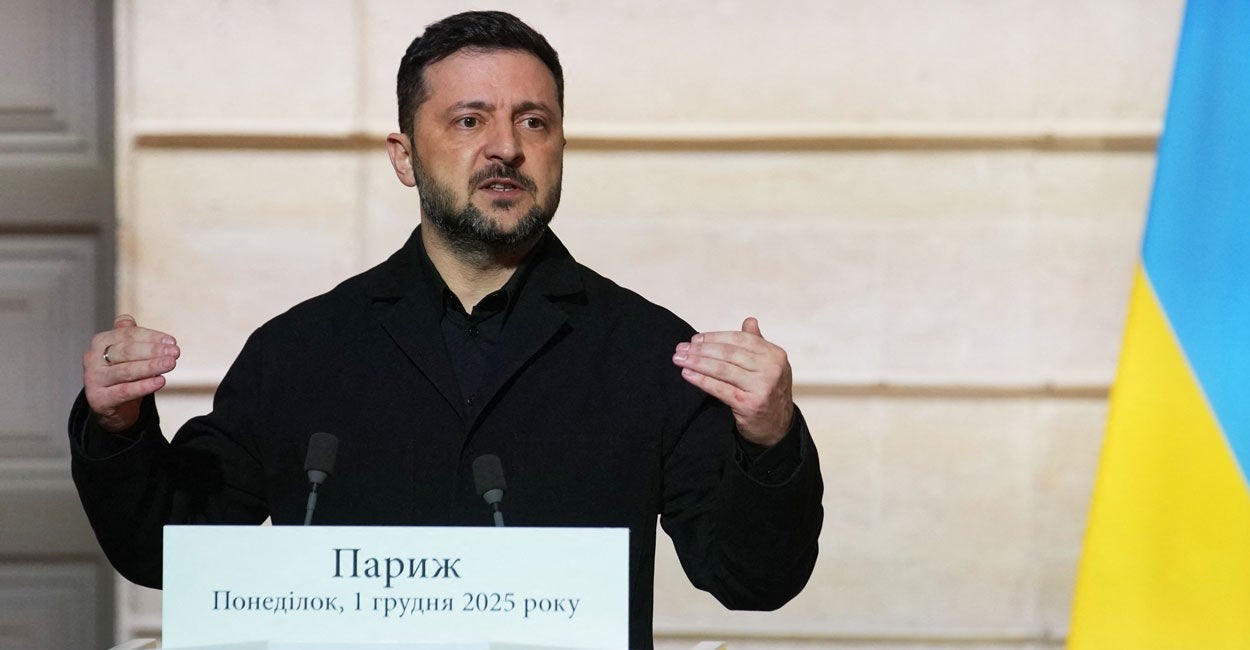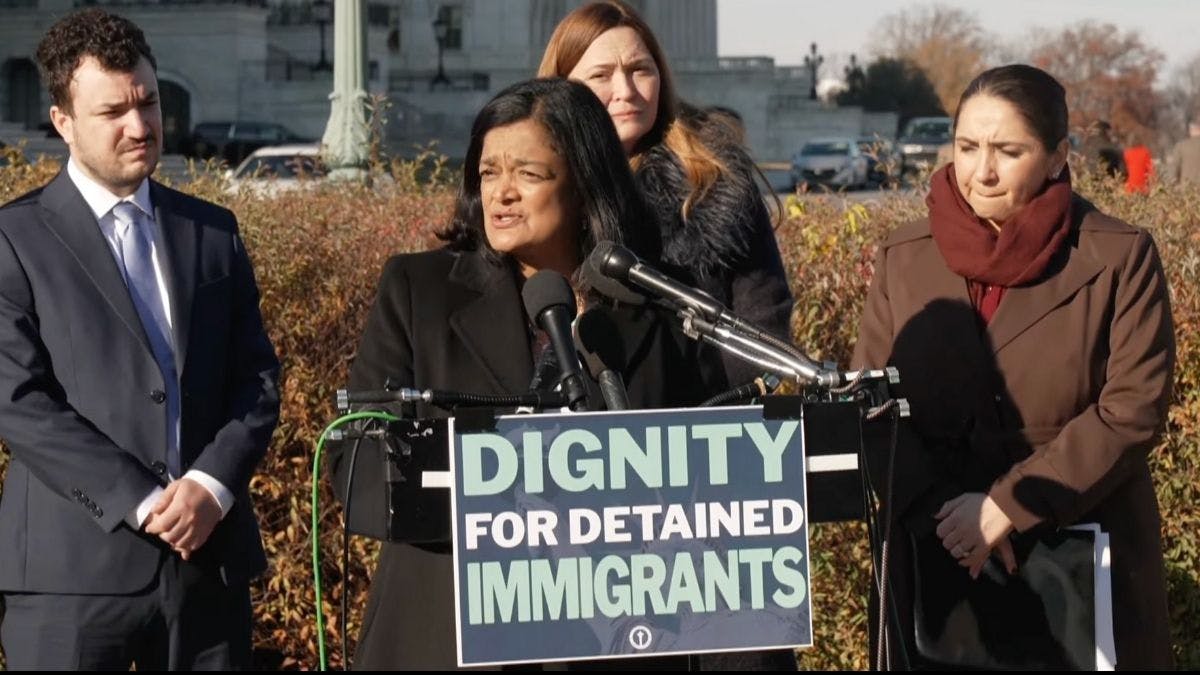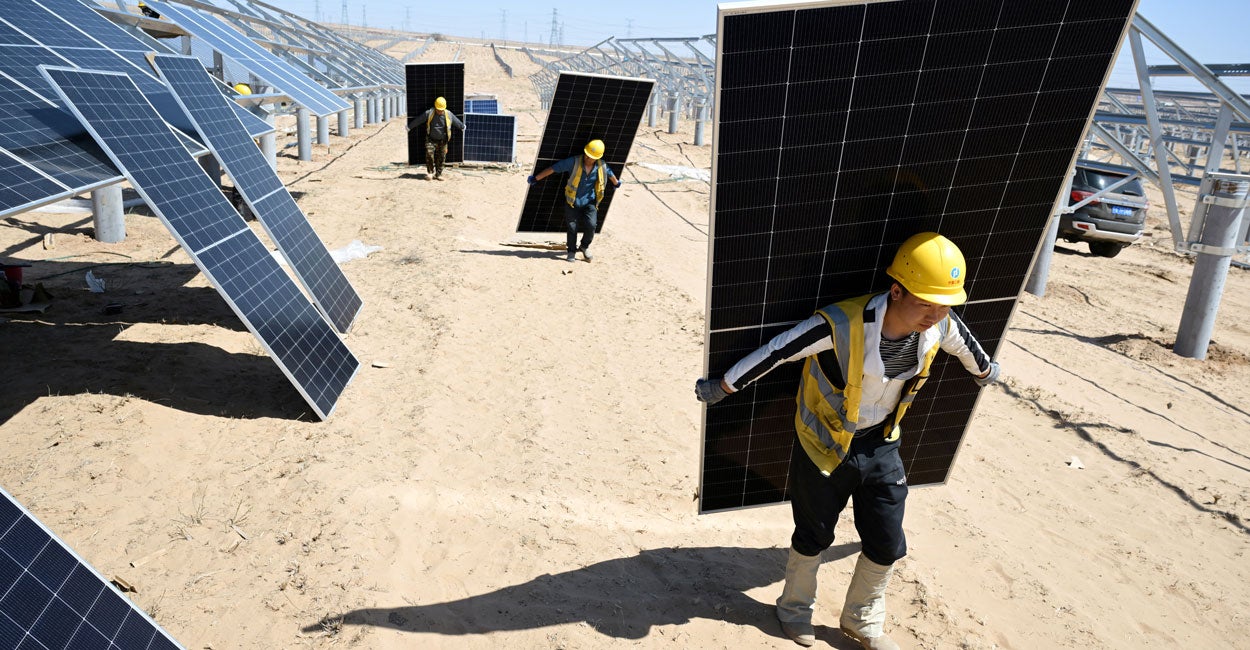Newly Adopted WHO Pandemic Pact Is a Step Toward ‘Global Surveillance Superstate,’ Expert Warns

After three years of negotiations, delegates to the World Health Organization’s annual meeting have adopted a global pandemic agreement that threatens national sovereignty, requires the transfer of vaccines during global pandemics, asks nations to fight “misinformation,” and authorizes such “social measures” as lockdowns and mask mandates.
The 78th World Health Assembly in Geneva, Switzerland, adopted the final text of the WHO Pandemic Agreement on Tuesday by consensus. The United States sent no representatives to the proceedings for the first time since 1948, while WHO crafted the global governance document with the assistance of 180 delegates from China, possibly the largest Chinese Communist Party delegation in history.
The pandemic agreement “is intended to create a rules-based, future-proof system that will stand the test of time,” stated France’s ambassador for global health, Anne-Claire Amprou, on Monday.
While the delegates eliminated some of the most egregious language contained in previous renditions of the pact, the final document still contains the worst provisions critics said violate national sovereignty.
Pending further negotiations, the agreement still requires nations to provide WHO with a target of “20% of their real time production of safe, quality, and effective vaccines, therapeutics, and diagnostics.”
The agreement stipulates that each nation “shall” impose “social measures during pandemics.” The World Health Organization defines “social measures” to include “physical distancing,” “mask-wearing,” and “contact tracing, isolation, and quarantine.”
The WHO “has been especially aggressive in taking away our freedom, imposing the China Model during 2020-2021: lockdowns, quarantines, closure of schools and churches, mask mandates, ‘vaccine’ mandates and ‘vaccine’ passports,” notes the manifesto of the Anti-Globalist International, founded by human rights activist Reggie Littlejohn.
‘Misinformation and Disinformation’
Under the present text of the agreement, nations agree to “prevent misinformation, disinformation, and stigmatization” during pandemics. At the 2023 WHA meeting, WHO amended its International Health Regulations (IHRs) to brand “misinformation and disinformation” as “public health risks,” which governments must combat.
The final accord asks nations to research which policies “hinder or strengthen adherence to public health and social measures in a pandemic and trust in science and public health institutions, authorities and agencies.” (This document does not contain any reference to preventing an “infodemic,” which previous versions defined as “too much information.”)
“Misinformation and disinformation are any information that differs from the official WHO narrative. How may these voices be prevented except by surveillance and censorship?” asked Littlejohn in an interview with The Washington Stand. “This surveillance state will be paired with international, interoperable Digital IDs, the framework for which is set forth in the Amended International Health Regulations—thus setting up a global biotech surveillance police state.”
WHO Director-General Tedros Adhanom Ghebreyesus, a former member of Ethiopia’s radical government who has close ties with the Chinese Communist Party, denounced negative assessments of the accord as disinformation. “Far from ceding sovereignty, the agreement actually affirms national sovereignty and national responsibility in its foundational principles,” he wrote in February 2024. “Indeed, the agreement is itself an exercise of sovereignty.”
During the pandemic, social media companies in the U.S. throttled and deleted messages, or banned accounts, which did not hew to the government’s narrative, often at the insistence of the Biden-Harris administration. “The WHO Pandemic Agreement offers a once-in-a-lifetime opportunity to build on lessons learned from that crisis,” said Teodoro Herbosa, president of this year’s WHA.
The accord’s One Health approach “recognizes that the health of humans is closely linked and interdependent with the health of domestic and wild animals, as well as plants and the wider environment (including ecosystems).” The controversial doctrine’s all-inclusive approach “can lead to surveillance and control of virtually every aspect of life on earth,” Littlejohn told The Washington Stand.
The document encourages nations to undertake “whole-of-government and whole-of-society” approaches and “achieve greater health equity through resolute action on the social, environmental, cultural, political, and economic determinants of health.”
WHO noted Tuesday the final agreement advances “the goal of making the world … more equitable in response to future pandemics.” That appears to portend a transfer of wealth on a global scale, as Tedros described the agreement’s adoption as “a recognition by the international community that our … economies must not be left vulnerable to again suffer losses like those endured during COVID-19.”

World Health Organization Director-General Tedros Adhanom Ghebreyesus wears a mask during the COVID-19 pandemic on June 11, 2020, in Geneva, Switzerland. (Fabrice Coffrini/AFP via Getty Images)
Although its drafters say the accord respects national sovereignty, its text foresees nations changing their national law in compliance with WHO’s diktats. “Each [nation] should review and consider amending, as appropriate, its national and/or domestic legislation with a view to ensuring that it is able to implement this Article in a timely and effective manner,” the agreement states.
After years of negotiations, delegates were able to reach consensus this week only by setting aside the road on the most contentious issue: the Pathogen Access and Benefit Sharing system. Prior negotiations hung up over intellectual-property rights, a key source of profits for the pharmaceutical industry, primarily based in the West. Delegates punted the terms of Pathogen Access and Benefit Sharing system to a future treaty annex, which will be negotiated by an Intergovernmental Working Group.
The Intergovernmental Working Group will also set up the Coordinating Financial Mechanism—which enables a global redistribution of wealth—and the Global Supply Chain and Logistics Network, which does the same with vaccines and medical technology.
Under the current agreement, delegates intend to finalize the language for the Pathogen Access and Benefit Sharing system within the next year, then choose to ratify the full treaty next year. WHO stated that no nation is bound by the WHO Pandemic until at least 60 nations ratify it, and no nation that does not sign must accord it the status of international law.
Global Surveillance ‘Very Intrusive’
“Anyone who isn’t a fan of the coming global surveillance superstate is right to be concerned about the recent approval of the WHO Pandemic Agreement at the World Health Assembly meetings in Geneva.
“The point not to miss is that this sets in place a precedent for a global legal and policy architecture that will make it normative for more control to be consolidated in the hands of a few,” Travis Weber, vice president for policy and government affairs at Family Research Council, told The Washington Stand. “The next global crisis may not be from a virus; but it will likely be a ‘health emergency’ that will be used to once again justify infringements on individual human rights and freedoms. On top of that, accelerating progress on [artificial intelligence] will allow such global control to be very intrusive and very effectively manipulated in the hands of a few.”
The Family Research Council has warned in a public comment that the global superstructure created by the WHO Pandemic Agreement could one day “function as a ‘turnkey totalitarian state.’”
President Donald Trump previously served notice to withdraw from WHO in July 2020, but the Biden-Harris administration reversed course the following January. The pandemic agreement was originally presented as a binding treaty, but the Biden-Harris administration reportedly demanded WHO officials rebrand the document as an agreement after realizing a treaty could never receive Senate ratification, as required by the Constitution.
Trump signed an executive order on his first day in office expressing U.S. intent to withdraw from the World Health Organization effective in January 2026, after the mandatory, one-year waiting period. Since he withheld America’s $260 million in annual dues, the WHO slashed $800 million from its total budget, with Tedros asking high- and middle-income nations to help plug WHO’s looming $1.7 billion biennial budget shortfall (down from an initial $2.5 billion deficit).
Actions taken by the second Trump administration to increase government efficiency and accountability may have also taken a bite out of the WHO’s budget. The 47th president’s “dismantling of the U.S. Agency for International Development (USAID) and deep cuts to the US President’s Emergency Plan for AIDS Relief (PEPFAR) have strained the finances of many member states, some of which may not be in a position to increase their contributions to WHO,” reported Health Policy Watch.
Robert F. Kennedy Jr., the secretary of the Department of Health and Human Services, cited efficiency concerns first in a long litany of grievances against the World Health Organization in a video presentation to the WHA this week.
“The WHO has become mired in bureaucratic bloat, entrenched paradigms, conflicts of interest, and international power politics. While the United States has provided the lion’s share of the organization’s funding historically, other countries such as China, have exerted undue influence over its operations in ways that serve their own interests,” said Kennedy. “The WHO often acts like it has forgotten that its members must remain accountable to their own citizens and not to transnational or corporate interests.”
The secretary’s scathing message specifically critiqued WHO’s promotion of transgender radicalism. “Too often it has allowed political agendas, like pushing harmful gender ideology, to hijack its core mission.” Last summer, WHO established “official relations” with the radical transgender and abortion lobbyists at the Center for Reproductive Rights.
Kennedy declared the WHO Pandemic Agreement “will lock in all of the dysfunctions of the WHO pandemic response. Well, we’re not going to participate in that. We need to reboot the whole system.”
“I urge the world’s health ministers and the WHO to take our withdrawal from the organization as a wake-up call,” said Kennedy. “We want a free international health cooperation from the straitjacket of political interference by corrupting influences of the pharmaceutical companies of adversarial nations and their [nongovernmental organization] proxies.”
He closed by inviting fellow global health ministers to launch “a new era of cooperation” and “create new institutions,” or work through more effective existing institutions, apart from “the moribund WHO.”
WHO’s Long Reach
Experts welcome the Trump administration’s unwavering response to global institutions but warn internationalism abroad poses a threat to constitutional liberty at home.
“Even though the United States has started to withdraw from the WHO, we should still be concerned,” Weber noted. “Though we have slashed our funding, the WHO apparatus is still moving ahead. If and when a globalist-minded administration once again takes power, the United States can quite easily join this agreement, which is already in place.”
Critics of globalism point out that, although the U.S. has no plans to sign the WHO Pandemic Agreement and intends to withdraw from the organization within eight months, the globalist document enables multiple technologies that could impact Americans’ daily lives.
“For example, the pandemic treaty’s requirements state that parties impose health IDs on their citizens, which may result in international travel restrictions or vaccine mandates being imposed on U.S. tourists and other travelers,” said the Sovereignty Coalition in a statement furnished to The Washington Stand. “Such IDs can also be used to institute, perhaps incrementally, the aggregation of other data that could be weaponized as part of a Chinese Communist Party-style social credit system (aka a ‘digital gulag’) and penalize infractions of the treaty’s censorship regime.”
The Pathogen Access and Benefit Sharing system “requires nations to share deadly pathogens with the WHO,” noted Littlejohn. “This system will greatly increase the chances of lab leaks and bioterrorist attacks. These in turn will greatly increase the profits of the pharmaceutical industry, and will give governments the pretext to keep people under lockdown and deprive them of their constitutional rights.”
“Even though the U.S. has withdrawn from the WHO, it will still be affected by the pandemic treaty—especially the constant stream of lab leaks that will likely result from the [Pathogen Access and Benefit Sharing] system,” Littlejohn told The Washington Stand. “Pandemics know no borders.”
Republican lawmakers have also introduced multiple bills to codify Trump’s agenda into law. Rep. Andy Biggs, R-Ariz., introduced the WHO Withdrawal Act (HR 54) ending American membership and repealing the 1948 statute authorizing U.S. participation in the global body. Rep. Chip Roy, R-Texas, authored the No Taxpayer Funding for the World Health Organization Act (HR 401), cutting off all financial contributions to WHO. A similar bill introduced by Rep. Jodey Arrington, R-Texas, called the WHO is Accountable Act (HR 600), would do the same under more limited circumstances.
Aside from exiting the WHO, Trump has ended U.S. membership in the United Nations Human Rights Council and the climate change-focused Paris accords; sanctioned the International Criminal Court; and withheld U.S. funds from the World Trade Organization, the United Nations Population Fund, and the United Nations Relief and Works Agency for Palestine Refugees in the Near East.
“The Trump administration has focused on the importance of national sovereignty—and the pandemic agreement seriously undermines such sovereignty. We should use our political heft to weigh in on these steps toward global government, and either slow or stop them,” said Weber. “We may try to withdraw from these matters of global importance, but whatever decisions are reached will come back to affect us here at home.”
Originally published by The Washington Stand
The post Newly Adopted WHO Pandemic Pact Is a Step Toward ‘Global Surveillance Superstate,’ Expert Warns appeared first on The Daily Signal.
Originally Published at Daily Wire, Daily Signal, or The Blaze
What's Your Reaction?
 Like
0
Like
0
 Dislike
0
Dislike
0
 Love
0
Love
0
 Funny
0
Funny
0
 Angry
0
Angry
0
 Sad
0
Sad
0
 Wow
0
Wow
0











































































